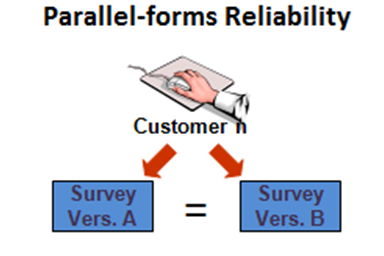
If the results obtained using a particular tool are consistent, then the tool can be said to be reliable. Reliability refers to the ability of a tool to produce consistent results (Ellis, Harley & Walsh, 2010).

This tool requires variables that are associated with refined theoretical concepts.

Theoretical validity assesses the degree to which agrees with basic theories. External validity can be classified into concurrent external validity and predictive external validity. If different results are obtained, then one of the tools is invalid.Įxternal validity tests the relationship between tools. If similar results are obtained, then the tools can be considered valid. However, face validity must be combined with others when assessing validity.Ĭomparative validity is an assessment tool that compares two or more tools of measurement. If at a glance, a tool appears to measure a variable accurately, then it can be considered valid. Face validity is an assessment method based on the appearance of the measuring tool.


 0 kommentar(er)
0 kommentar(er)
